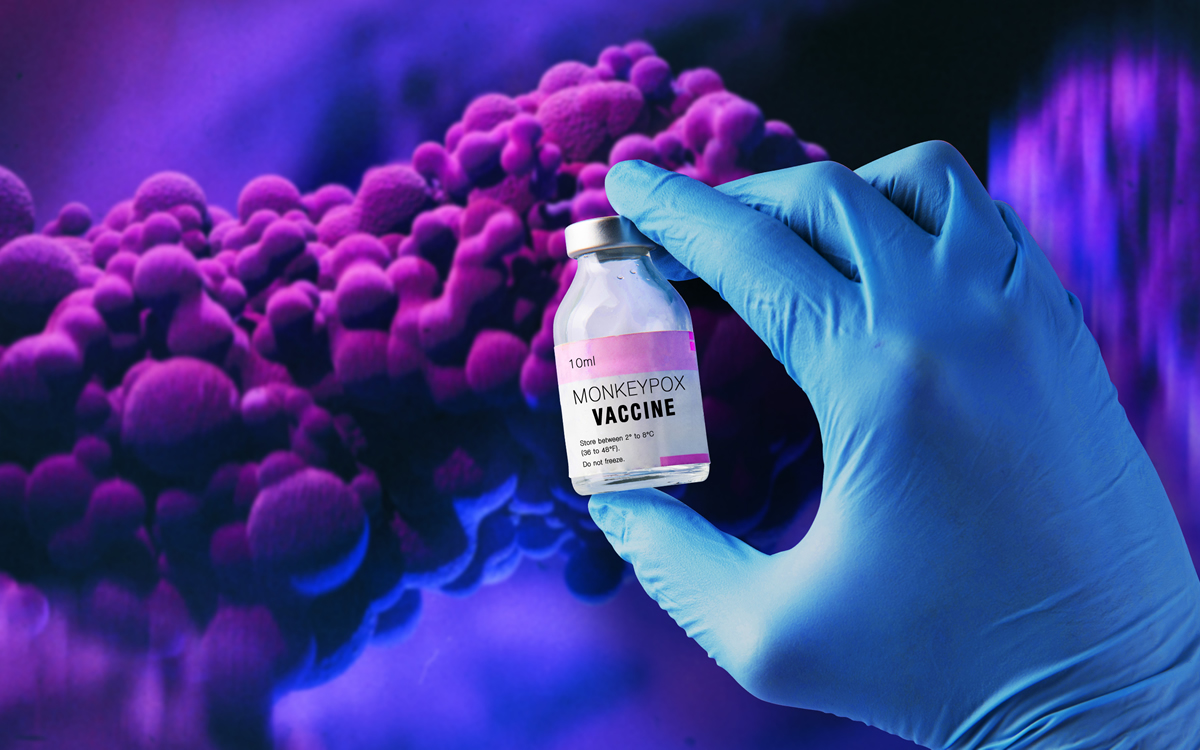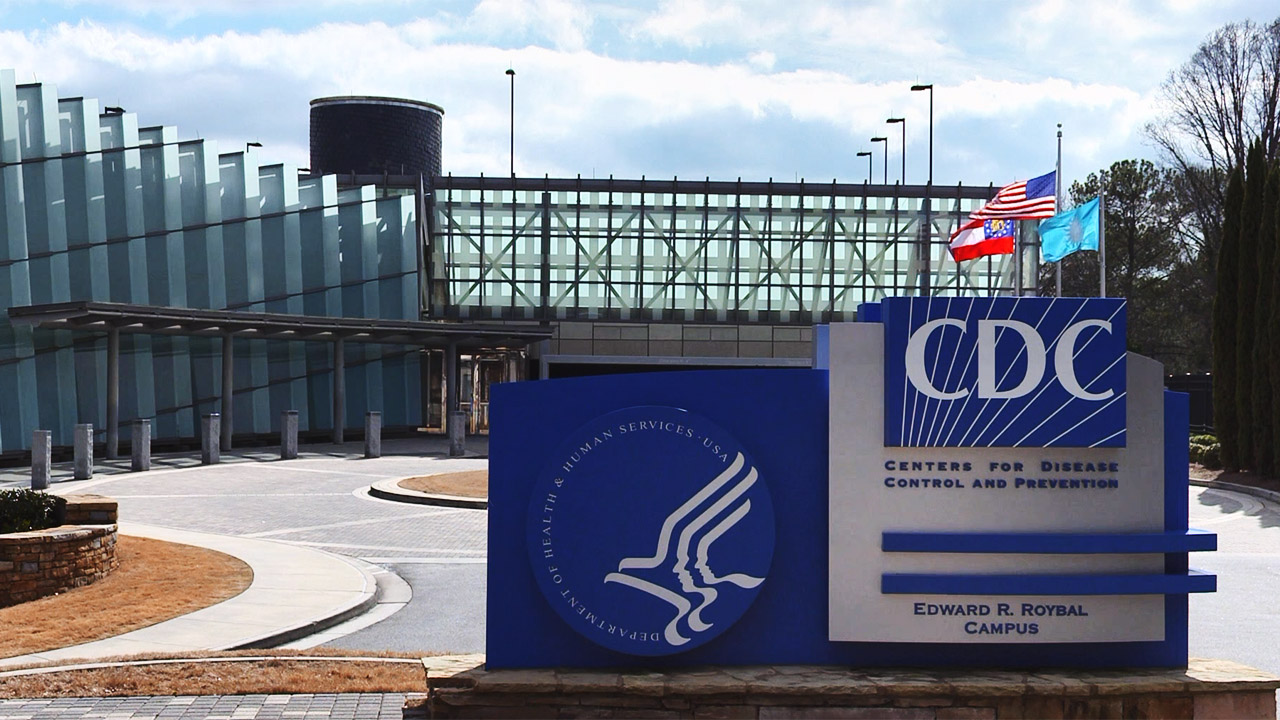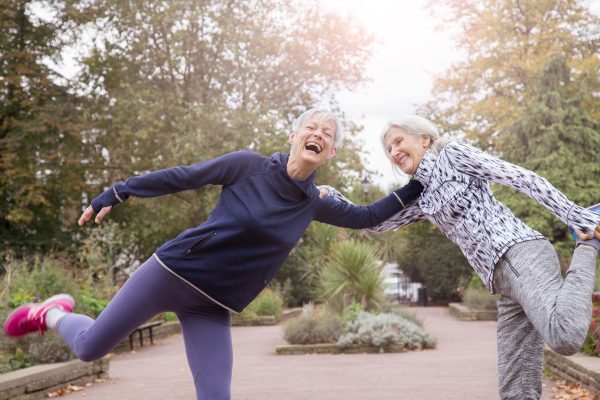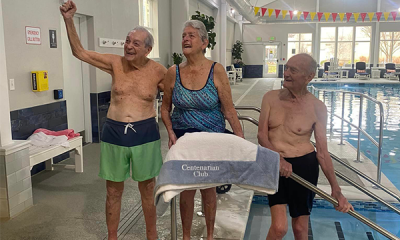Health
Monkeypox: History must not repeat itself
Mistakes made during the COVID-19 pandemic and the AIDS epidemic occurring again

What’s that saying? Those who don’t understand history are doomed to repeat it?
Once again, the United States is repeating mistakes made during the COVID-19 pandemic and the AIDS epidemic.
It’s been two months since the first U.S. patient with monkeypox was identified. There are now 1,900 cases that we know of. The nation’s capital, Washington, D.C., leads the country in cases per capita. The opportunity to contain the virus is slipping away.
The country needs a swift, but comprehensive response. We need more vaccines. We need uniform standards and clearer rules about testing and treatment. Trusted officials need to combat myths. And people must get vaccinated, particularly those at the greatest risk.
Testing standards are not uniform, for example, a problem that echoes what happened in the early days of COVID-19. There are not enough vaccines and we are not allocating them to areas hardest hit. Even our tech isn’t right. People looking for vaccines have dealt with crashed websites just like they did at the beginning of the COVID vaccine rollout. And, as AXIOS noted, while there is an effective, FDA-approved antiviral treatment, patients only can get it if they fit within “an onerous 120-page protocol for expanded access to investigational new drugs.”
We know what will happen if we don’t get this right. We’ve lived that reality for two-and-a-half years.
Let me be clear, though. Monkeypox is not COVID-19. It does not spread as easily as COVID since, generally, transmission requires personal or intimate contact. That fact is on our side. (Scientists have not ruled out airborne transmission, however, so this guidance could be updated as we learn more.) As the New York City Department of Health admitted “a lot of cases … are not being diagnosed.” These unknowns are halting signs. If airborne spread is confirmed, or if it’s found asymptomatic carriers can spread Monkeypox, Monkeypox spread will be much worse than we currently anticipate. We are still learning about this new viral strain. We must remember that.
Like we did at the beginning of the AIDS epidemic, we also have a media problem. In the early 1980s, the public was led to believe AIDS affected only men who had sex with men. That messaging, created stigma and fear associated with AIDS. The results were catastrophic.
As pediatric emergency medicine physician Vinay Kampalath wrote in STAT News, “Pathogens don’t discriminate like humans do — they have no innate capability of discerning race, sexual orientation, religion, or nationality.” Whether gay, straight, or bisexual, if you have close contact with someone with monkeypox, you’re at risk. Even so, it took the Center for Disease Control and Prevention until this month to update its guidance to state, “Anyone who has been in close contact with someone who has monkeypox can get the illness.”
At present, however, not everyone has the same statistical chance of getting the virus because the virus is more prevalent in some communities over others. So while we need to be careful about reinforcing stigma, we do need to target relevant messaging to the people and places most at risk. And right now, that appears to be men and trans women who have sex with men.
We can tailor monkeypox awareness campaigns and focus resources to certain groups of individuals who are most effected while educating the public at large. As the virus spreads and as vaccines become more available, public and private vaccine campaigns must target people of all orientations and racial and ethnic backgrounds. Ultimately, if a person does not see themselves in a public health campaign, they will not protect themselves.
While government officials get their act together, Americans must take charge of their own health. Like COVID-19, we can reduce spread with a dose of common sense and personal responsibility. Here’s what you can do:
- Register to get vaccinated;
- Contact your healthcare provider if you develop rashes or abnormal lesions;
- Avoid sexual contact if you’re having flu-like symptoms (COVID is still a risk);
- Avoid sexual activity or physical skin-to-skin contact if rashes or lesions are found;
- Because linens can be contaminated, sleep in a different room if your partner is infected
- Cover lesions; and
- Stay informed.
One great way to stay informed is to join DC Health, the Washington Blade, and me at a special Monkeypox Town Hall on Monday, July 25th at 7pm at the Eaton. I’ll be moderating a panel of experts to answer your questions. Join us.
Dr. N. Adam Brown is a practicing emergency medicine physician, founder of a healthcare strategy advisory group ABIG Health, and a professor of practice at the University of North Carolina’s Kenan-Flagler Business School. Previously he served as President of Emergency Medicine and Chief Impact Officer for a leading national medical group. Follow him on Twitter @ERDocBrown.
Health
UNAIDS to commemorate Zero Discrimination Day’s 10th anniversary
UN agency urges global action to protect human rights

As the world marks the 10th anniversary of Zero Discrimination Day; UNAIDS is sounding the alarm on the increasing threats to human rights, calling for renewed efforts to protect the rights of all individuals as a fundamental step towards ensuring health for everyone.
Established by UNAIDS a decade ago, Zero Discrimination Day aims to promote equality and fairness regardless of gender, age, sexuality, ethnicity or HIV status. The progress achieved over the past years is now in jeopardy, however, due to rising attacks on the rights of women, LGBTQ people and other marginalized communities.
UNAIDS Executive Director Winnie Byanyima emphasized the critical link between protecting human rights and safeguarding public health.
“The attacks on rights are a threat to freedom and democracy and are harmful to health,” she said in a press release. “Stigma and discrimination obstruct HIV prevention, testing, treatment and care and hold back progress towards ending AIDS by 2030. It is only by protecting everyone’s rights that we can protect everyone’s health.”
Despite challenges, there has been notable progress.
At the onset of the AIDS pandemic more than 40 years ago, two-thirds of countries criminalized consensual same-sex sexual relations. They are now decriminalized in two-thirds of countries. An additional 38 countries around the world have pledged to end HIV-related stigma and discrimination, contributing to positive changes that include 50 million more girls attending school compared to 2015.
To sustain and enhance these advancements; UNAIDS urges global support for women’s rights movements, LGBTQ rights, racial justice, economic justice, climate justice and peace initiatives. By standing with communities advocating for their rights, the U.N. aims to reinforce the collective effort towards a more inclusive and equitable world.
Zero Discrimination Day is observed on March 1.
Events and activities that will take place around the world throughout the month will serve as reminders of the essential lesson and call to action: Protecting everyone’s health is synonymous with protecting everyone’s rights.
“Through upholding rights for all, we will be able to achieve the Sustainable Development Goals and secure a safer, fairer, kinder and happier world — for everyone,” said Byanyima.
Health
New CDC report finds transgender women at higher risk for HIV
More than 1,600 people in seven cities surveyed

The Centers for Disease Control and Prevention issued a new study report this week that revealed that restricted by employment and housing discrimination and lack of access to needed gender-affirming healthcare for transgender women increasing the risk of contracting HIV.
Researchers reviewed data from a 2019-2020 survey, the National HIV Behavioral Surveillance Among Transgender Women, which found that the demographics of HIV/AIDS have been disproportionally high, especially among Black and Latina trans women, who had experienced employment and housing discrimination coupled with lack of access to gender-affirming healthcare.
The Jan. 25 Morbidity and Mortality Weekly Report was based on data studies of more than 1,600 trans women in seven major urban locales. Participants from Atlanta, Los Angeles, New Orleans, New York, Philadelphia, San Francisco and Seattle were chosen by referrals from people and community-based organizations who knew or were part of the local population of trans women.
The study’s researchers noted: “Employment discrimination occurs at the overlapping nexus of poverty, homelessness, incarceration, health insurance, disability, food insecurity and survival sex work. These issues are interconnected.”
The study stated that trans women’s inability to access quality healthcare, including gender-affirming treatment or access to PrEP, and can expose them to potential incarceration as many turn to “survival sex work” and violence, which increases the risk of contracting HIV.
The study’s author’s pointed out: “When economically marginalized transgender women are refused employment, this refusal cyclically contributes to economic hardships. This analysis …demonstrates the importance of transgender women working and living with dignity and without fear of unfair treatment.”
Health
A Whole New Perspective on Well-Being
The Mather’s team recognizes that everyone’s wellness journey is completely unique to their life experiences and influences.

It’s easy to spot the distinctive, elegant silhouette of The Mather, a Life Plan Community for those 62+ opening this spring in Tysons, Virginia. What is not apparent to the naked eye is The Mather’s unique wellness philosophy, which is literally built into the community.
The Mather’s team recognizes that everyone’s wellness journey is completely unique to their life experiences and influences.
Nature is one of the important factors that contribute to well-being. So The Mather is incorporating biophilic design—a design approach to facilitate access to nature or things that replicate natural patterns. This can include interior spaces with sightlines to a garden, choosing natural wood and stone as interior materials, or incorporating fragrant flowers and plants indoors to spark memories and provide tactile opportunities such as gardening.

“Providing biophilic design within interior settings connects residents to the natural world,” says Mary Leary, CEO and President of Mather, the organization behind The Mather. “Research shows that a connection to nature provides positive benefits to mental states and overall well-being. At The Mather, biophilic design is the intersection of buildings and programs with nature in an urban setting.”
“The Mather is attracting a diverse group of older adults,” says Mary. “As a result, we aim to incorporate wellness practices from around the world, including Wyda movement theory of the Celtic Druids, which helps people achieve harmony with nature and contentment through mindfulness.” This holistic regenerative approach is similar to Qi Gong and yoga, while born in a different part of the world. Mather Institute has a special focus on mindfulness to support older adults’ practice of present moment awareness, which can lead to increased overall well-being, compassion, and joy.
A very different example of a wellness offering at The Mather is the Gharieni Welnamis spa wave bed, which uses computer-controlled vibrational therapy and audio frequencies to train the brain to relax. “The bed increases mindfulness, concentration, and creativity—all of which support our mission of creating Ways to Age Well,SM” says Mary.
These and other personalized ways to wellness will ensure that residents of The Mather can choose from seemingly countless ways to focus on their well-being. In other words, the sky’s the limit!
-

 State Department3 days ago
State Department3 days agoState Department releases annual human rights report
-

 Maryland4 days ago
Maryland4 days agoJoe Vogel campaign holds ‘Big Gay Canvass Kickoff’
-

 Politics3 days ago
Politics3 days agoSmithsonian staff concerned about future of LGBTQ programming amid GOP scrutiny
-

 District of Columbia20 hours ago
District of Columbia20 hours agoCatching up with the asexuals and aromantics of D.C.











